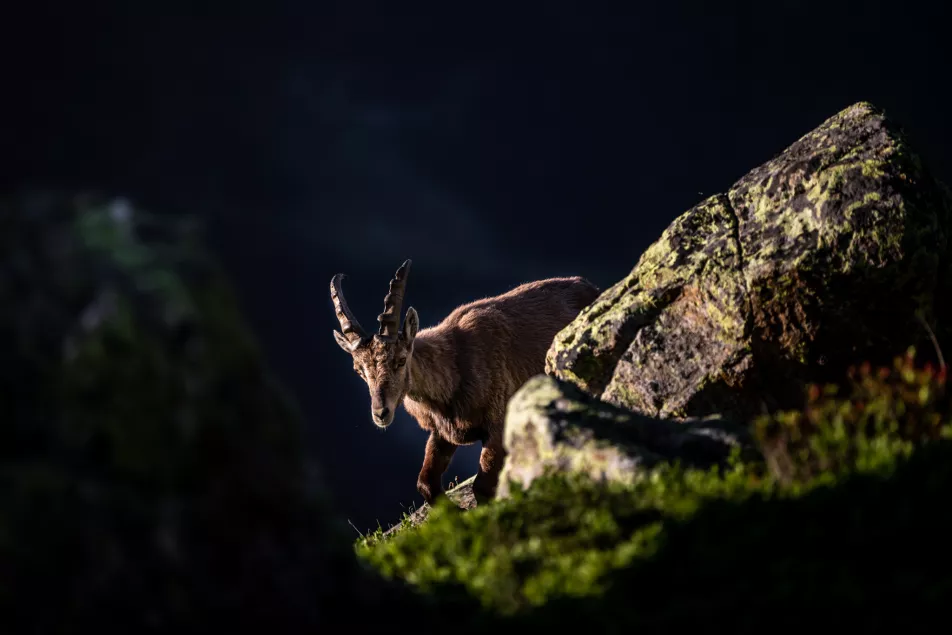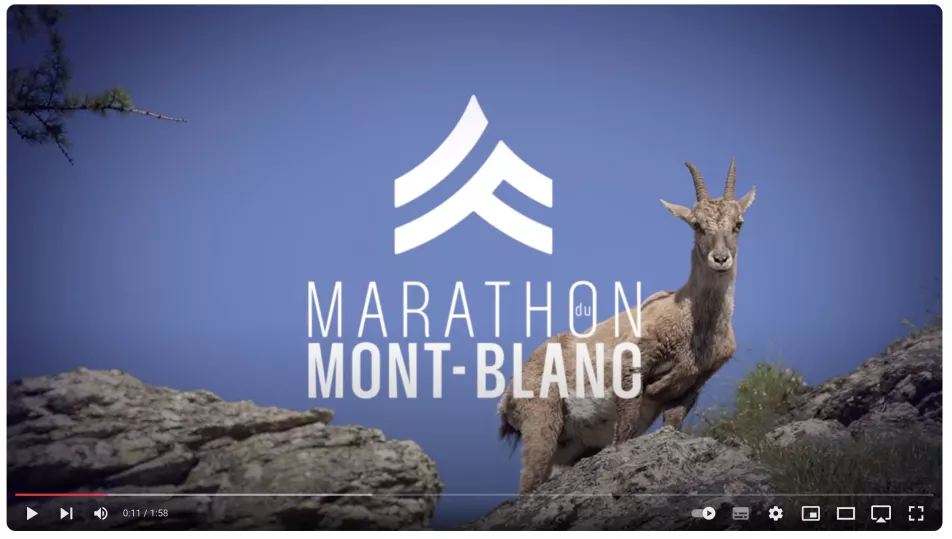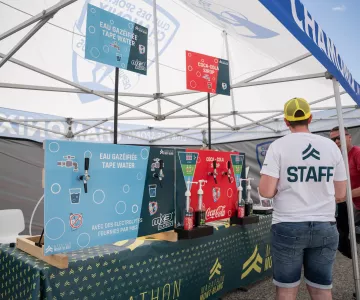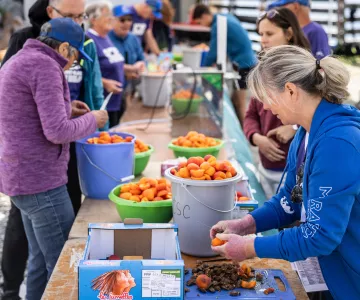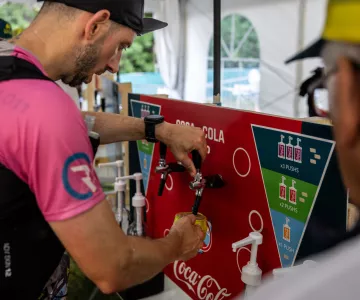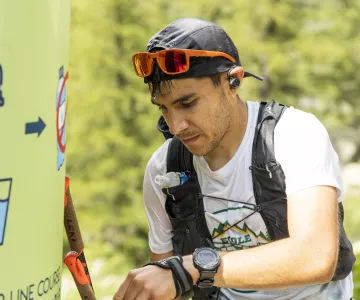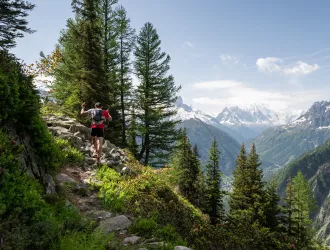
An ecofriendly Marathon
Since the creation of the Cross du Mont-Blanc in 1979, the Club des Sports de Chamonix has been actively committed to offering quality races while limiting their impact on the environment. With this in mind, we evaluate our environmental impact every year and implement a number of strong actions, which we reinforce from one year to the next.
Reducing waste and promoting rational use of resources
Since 2021, still and sparkling water bottles have completely disappeared from our refreshment stands, thanks to an ingenious production and distribution system developed by our technical team. Thanks to a financial investment of €50,000, the use of 50,000 plastic bottles has been avoided (every year!).
In 2024, we're going one step further by also doing away with plastic Coca-Cola bottles: we're now offering runners the chance to mix Coca-Cola syrup with the sparkling water we already produce.
All single-use containers have also been eliminated since 2017, with each runner required to bring his or her own reusable cup, bowl and spoon.
Since 2024, all plastic bottles have been removed from our refreshment stands.
In collaboration with SITOM (the valley's waste sorting center) and the Ecotrivelo association, we sort recyclable and non-recyclable waste and provide compost buckets for bio-waste. The volunteers in charge of our refreshment stands are made aware of this issue and ensure that runners comply with the sorting instructions. So, 85% of our waste is organic and composted in Chamonix.
Since 2011, we have used only eco-responsible chip toilets, which require no chemicals or water supply, and whose waste is entirely biodegradable.
When registering, runners can choose a vegetarian meal option, must offset their carbon footprint linked to their transport, and tell us whether or not they would like to collect a T-shirt. We have also replaced the trophies formerly offered to runners with diplomas and gifts that are eco-responsible and/or consumable.
We also prefer to purchase large quantities of minimally-packaged products with recyclable packaging. We keep paper-based administrative procedures to a minimum, with online registrations and a reduction in the number of paper documents required for race number delivery (digital system).
Last but not least, our teams of closers are responsible for cleaning up all the trails after the runners.
Favoring organic and local products
Buying organic and local products is also a matter of course for us. For 2/3 of our purchases, we use local producers and retailers. Among others, our tommes come from the Montroc and Vallorcine farms; our sausages are supplied by Salaisons du Mont-Blanc; we collaborate with Brasserie du Mont-Blanc for the beers served at race arrivals; our fruit is organic and bought from Maulet Primeurs; the bread, sandwiches and cakes come from local bakeries; and the hot dogs and diots are prepared by Maison Viret, a local caterer. For the Emosson refreshment station, the only one in Switzerland, we also use local producers.
Trophies in line with our commitments
Since 2024, the trophies awarded to the winners of the various races have been made by Pahapa, a young company made in Chamonix. Made from bio-sourced corn, they are recyclable and industrially compostable!
Preserving the Aiguilles Rouges Nature Reserve
4 races organized as part of the Mont-Blanc Marathon cross the Aiguilles Rouges Nature Reserve : the 90km, 42km, 23km and The Young Race.
Nature reserves are a tool for protecting natural environments. They protect areas, species, geological and/or biological heritage. Their main aim is to maintain or improve a state of conservation, but also to manage natural environments and raise awareness of their protection. We make our runners aware of the need to protect the environment, applying zero tolerance to littering and requiring them to stay on the trails. We also invite them to open their eyes to observe the remarkable animals, flowers and plants along the trails, and above all not to disturb the animals that have made their home in the reserve (ibex, chamois, wild boar, eagles, etc.)!
🍃 Best practices to adopt:
- Don't go off the trails
- Don't cut corners either on the way up or on the way down (this encourages erosion)
- Respect the race markers and permanent markers
- Don't use a drone
- Prefer to practice during the day, at night, disturbance is increased
- Get into the habit of putting your garbage in a pocket where it cannot escape
- When approaching a wild animal, slow down and let the animal move away at its own pace
- Know the correct behaviour to adopt in the presence of herd protection dogs
- Don't share your digital tracks, especially if they are false!
